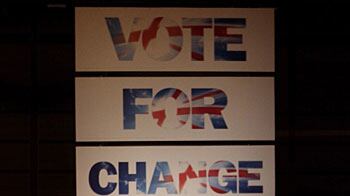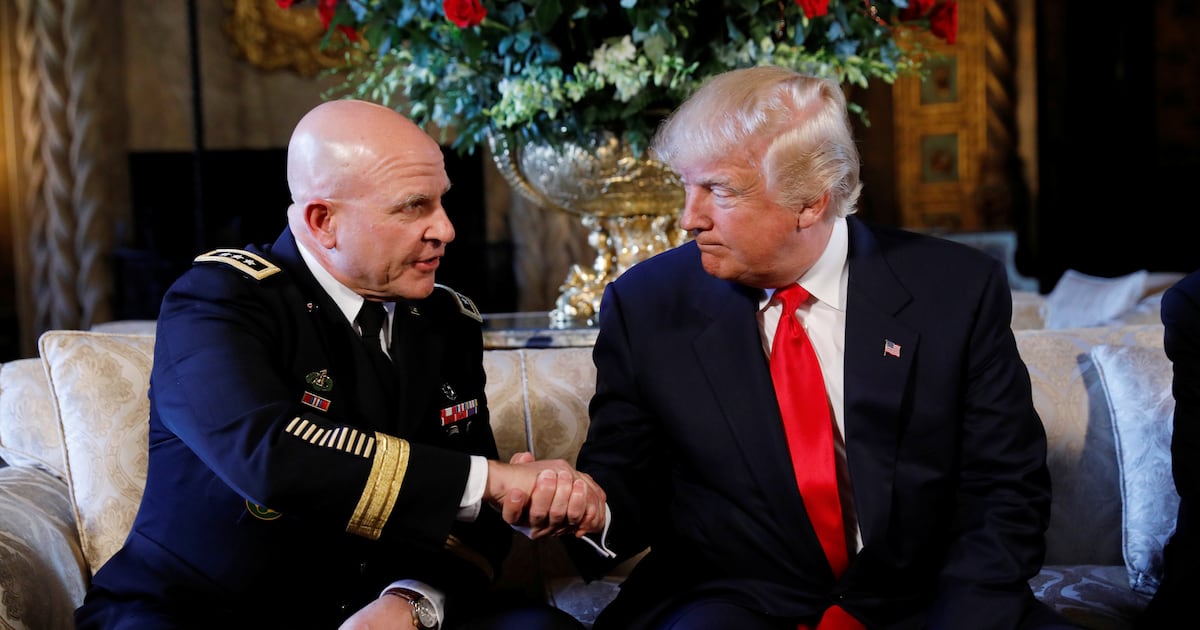
British politics stands in its worst state of flux and doubt since February 1974, plus everyone’s got a hangover. Rather like Americans in the year 2000, we are waking up after all-night election parties with no idea who is going to form the next government. When I shook Conservative Party leader David Cameron’s hand at 5 a.m. at Conservative Party headquarters, and congratulated him on the defeat of the Labour former home secretary Jacqui Smith—"Yes, Andrew, that was a joy," he replied—I assumed he was going to be our next prime minister. Now, anything is possible.
Although the sitting prime minister and Labour leader Gordon Brown has comprehensively lost the election—with over 80 seats going to the Conservative and Liberal Democrats parties—the Conservatives have fallen short of getting the 326 seats that would give them an overall majority. With many seats still to declare, it looks like they will get around 306. So for the first time in a third of a century, we have a hung parliament, with all the haggling and uncertainty that that implies. The bubbles in the Champagne glasses at the party headquarters have gone very flat; now’s the time for horse-trading.
The Tory nightmare, expressed volubly at their headquarters last night as the prospect of a hung parliament loomed ever closer, is that their election warning of ‘Vote Clegg, get Brown’ will prove all too true.
• More Daily Beast writers weigh in on the U.K. electionIn the 18th, much of the 19th and occasionally in the early 20th century, hung parliaments were commonplace in the House of Commons, and broad coalitions almost the norm. Since 1974, however, they have been synonymous with weakness and even danger, and perhaps never more so than in our economic troubles today. Even if the Labour and Liberal Democrat parties conjoined they would still only reach around 318 seats, eight short of a majority and only 12 more than the amount predicted for the Conservatives (the votes will continue to be counted until lunchtime today, Friday). The markets are already responding by pummelling British bonds and the prospect of days of political uncertainty, perhaps lasting over the weekend, is prompting talk of “financial Armageddon” next week.
Last night started off well for Conservatives; at a large dinner given by the party treasurer Michael Spencer and his impossibly glamorous girlfriend Sarah, Marchioness of Milford Haven, at one of London’s best fish restaurants, Scott’s in Mayfair, the general assumption was that the party would squeeze a small majority and finally bring to an end Labour’s 13 years in office. Yet by the time I got to the BBC’s party on a boat near the London Eye (the largest big wheel in Europe) and saw the results being flashed onto Big Ben, the mood had totally altered, much to the delight of the generally left-wing BBC staff.
For although some constituencies were indeed reporting swings from Labour to the Conservatives of up to 12%, others were as low as 2%, and nothing seemed uniform. The Conservatives need an overall swing of 8.2% to win because they had been crushed back in the 2005 General Election, but no pattern whatsoever could be discerned. This was probably because the expenses scandal last year—in which MPs of every party were discovered to have ripped off taxpayers in dodgy, and occasionally downright illegal, expenses claims—meant that candidates were being judged as much as individuals as for their party. The Tory MP for Wells, for example, who had put bags of manure for his garden on his parliamentary expenses, lost while those around him won.
One surprise of the night was that the Liberal-Democrats fared so badly. Their leader Nick Clegg was judged by the inside-the-Beltway commentators to have won the TV debates and the polls had shown a big jump; his numbers leapt an unprecedented 11% in one week. But when it came to the polling booth this enthusiasm evaporated. Nonetheless, in a hung parliament, he could emerge as the kingmaker and has just announced that he will go into coalition with whichever party will change the voting system.
The parliamentary arithmetic seems to suggest that as neither the Conservatives on their own nor a Labour + Liberal-Democrat coalition will be able to, in the constitutional phraseology, "command the confidence of the House of Commons," it will be up to a motley collection of minor parties to decide who becomes prime minister. These include Scottish and Welsh Nationalists, Irish republican Sinn Fein, the Democratic Unionist and Ulster Unionist parties, and a single Green MP, Caroline Lucas who was elected for Brighton Pavilion.
The Tory nightmare, expressed volubly at their headquarters last night as the prospect of a hung parliament loomed ever closer, is that their election warning of "Vote Clegg, get Brown" will prove all too true. The Liberal Democrats’ price for entering a coalition is a reform of the voting system by which future elections would be fought under proportional representation rather than the first-past-the-post system. The Conservatives would not accept such a suicidal reform, but Labour might well. If enacted, PR would keep the Conservatives out of office for a generation, and hand the balance of power to the Liberal-Democrats virtually forever. Plenty of Labourites don’t want PR because it would also destroy the prospects of red-blooded socialism in the U.K., but the lure of staying in office after this weekend will probably be enough for Brown to offer something substantial to the Liberals. There is, therefore, everything to play for.
The paradox of having two defeated parties—both Labour and the Liberal-Democrats underperformed badly—cobbling together an agreement that would stymie the party that won an extra 90 seats is not lost on Conservatives. They always knew that Gordon Brown would have to be pried out of Downing Street by his fingernails, but they assumed it would somehow happen after an electoral humiliation like that of last night. This morning, with their heads aching from the all-night partying, they can’t be too sure.
The smart money, and a lot of money has changed hands on wagers made over the last four weeks of campaigning, is that this knife-edge situation will either end in another general election before too long—we had two elections in 1910 and in 1974—or the deadening prospect of Britain changing its electoral system so that radicalism like Margaret Thatcher’s could never be seen again. In an economy in turmoil, neither prospect looks inviting.
Historian Andrew Roberts' latest book, Masters and Commanders, was published in the U.K. in September. His previous books include Napoleon and Wellington, Hitler and Churchill, and A History of the English-Speaking Peoples Since 1900. Roberts is a fellow of the Royal Society of Literature and the Royal Society of Arts.






